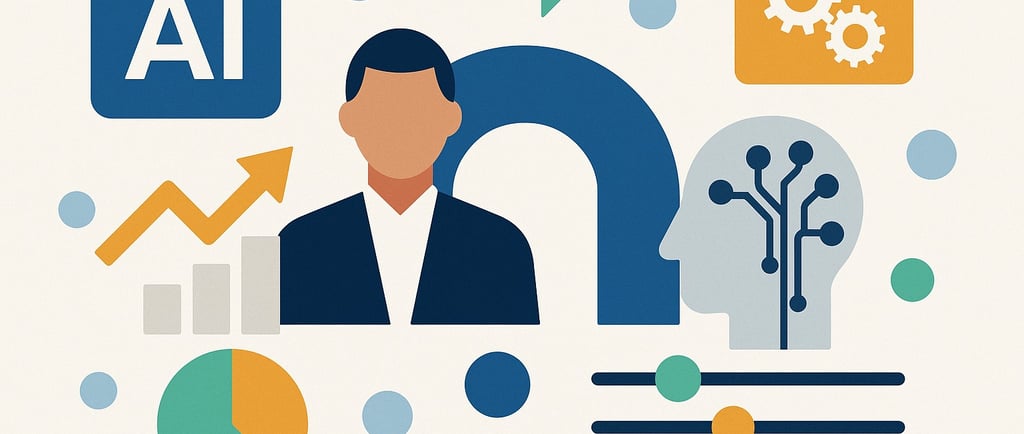Navigating the Future of AI and Employment
The UNCTAD report warns that AI could impact up to 40% of jobs globally, particularly in knowledge-intensive sectors. While advanced economies may better harness AI's benefits, they also face significant risks of job displacement. Ensuring equitable access to AI and including developing nations in governance discussions are crucial for a fair economic future.
USAGEFUTUREINVESTINGAGENTSPOLICYTOOLS
The AI Maker
9/25/20252 min read


The landscape of artificial intelligence (AI) is evolving rapidly, and its implications for the global economy are profound. According to a recent UNCTAD report, the AI market is projected to hit a staggering $4.8 trillion by 2033, paralleling the size of Germany’s economy. While this growth heralds significant opportunities, it also raises crucial questions about job displacement and economic inequality.
AI is not merely a tool for efficiency; it's a transformative force that could affect nearly 40% of jobs worldwide. The report highlights that while previous technological advancements primarily impacted blue-collar roles, this time, knowledge-intensive sectors are at risk. This shift means that advanced economies, which are better equipped to leverage AI, will likely feel the brunt of these changes.
Rebeca Grynspan, the agency chief of UNCTAD, emphasizes the importance of putting people at the heart of AI development. This involves fostering international cooperation to create a global framework that prioritizes human interests over mere technological advancement. As she notes, historical trends show that technological progress alone does not guarantee equitable income distribution or inclusive development.
The report also highlights that access to AI infrastructure remains concentrated among a small number of economies, primarily the US and China. With just 100 firms accounting for 40% of global corporate research and development spending, the uneven distribution of AI capabilities poses a risk to developing nations. To address these disparities, UNCTAD calls for immediate action to invest in digital infrastructure, build capabilities, and strengthen AI governance.
While concerns about job replacement are valid, the report also points out that AI can create new industries and empower workers. The key lies in reskilling and upskilling the workforce to adapt to new opportunities that AI presents. Investing in workforce adaptation is not just a nice-to-have; it’s essential for ensuring that AI enhances employment opportunities rather than eliminates them.
Finally, the report underscores the importance of including developing nations in global discussions about AI governance. With 118 countries, mostly in the Global South, absent from major AI governance dialogues, there’s a pressing need to ensure that AI serves the interests of all, not just a privileged few. As we move forward, the challenge will be to balance innovation with social responsibility, making sure that the benefits of AI are shared equitably across the globe.
Cited: https://www.digitaljournal.com/tech-science/ai-could-impact-40-percent-of-jobs-worldwide-un/article
Your Data, Your Insights
Unlock the power of your data effortlessly. Update it continuously. Automatically.
Answers
Sign up NOW
info at aimaker.com
© 2024. All rights reserved. Terms and Conditions | Privacy Policy
